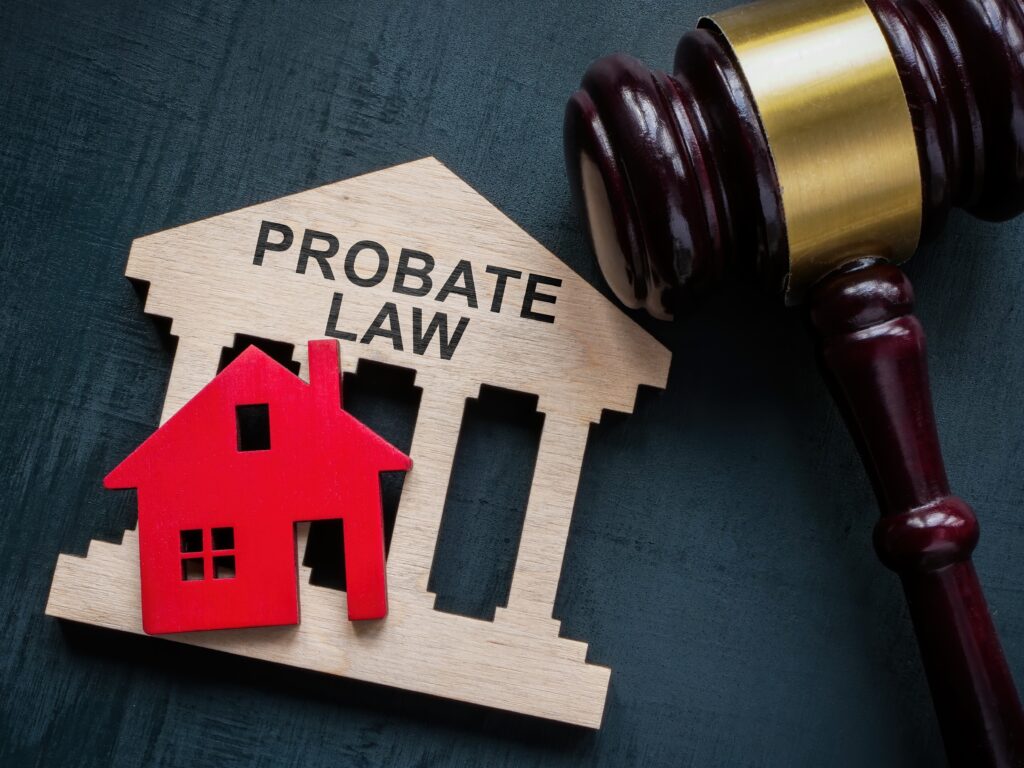
Probate is a legal process that oversees the distribution of a deceased person’s assets and debts. It can be a complex and time-consuming undertaking, involving various court procedures, documents, and fees. There are different types of probate, each with its own set of rules and requirements. It’s important to understand the types of probate to determine which one applies to your situation and how to navigate it.
Understanding Probate and Its Purpose
Probate serves multiple purposes, including validating a will, identifying heirs, paying creditors, and transferring property. The probate process starts after someone dies and typically involves filing a petition with the probate court, notifying beneficiaries and creditors, and conducting an inventory and appraisal of assets. Depending on the type of probate, this process may vary in terms of formality, time, and cost.
Definition of Probate
Probate is the legal process of settling a deceased person’s affairs by supervising the distribution of their assets and paying off their debts. During probate, a court oversees the collection, management, and transfer of the deceased person’s property according to their will, or if there is no will, according to state law.
The Role of Probate in Estate Administration
Probate is a critical component of estate administration, as it ensures that the deceased person’s assets and debts are properly accounted for and distributed. The probate court oversees the process of gathering and managing the deceased person’s assets, determining the validity of their will, and distributing assets to beneficiaries and heirs. This legal process provides a degree of protection to all parties involved, including creditors and beneficiaries, by ensuring that everyone’s rights are respected and upheld.
It is important to note that the probate process can be lengthy and costly, depending on the complexity of the estate and any disputes that may arise. However, it is also an important process that helps to ensure that the wishes of the deceased are carried out and that their assets are distributed in a fair and equitable manner.
During the probate process, the court will also determine if there are any outstanding debts or taxes owed by the deceased. These debts must be paid off before any assets can be distributed to beneficiaries or heirs. This can sometimes lead to disputes between creditors and beneficiaries, as some may feel that they are entitled to a larger share of the estate than others.
Another important aspect of probate is the identification of heirs. In some cases, the deceased may not have a will or may have left unclear instructions regarding the distribution of their assets. In these cases, the probate court will determine who the rightful heirs are and distribute the assets accordingly.
Overall, while the probate process can be complex and time-consuming, it plays an important role in ensuring that the wishes of the deceased are carried out and that their assets are distributed fairly and equitably. It is important to work with a knowledgeable attorney to navigate the probate process and ensure that your rights are protected.
Types of Probate
Probate is the legal process of administering a deceased person’s estate. It involves identifying and valuing the assets, paying off any debts, and distributing the remaining assets to the beneficiaries. There are different types of probate, each with its own requirements and procedures. Let’s explore them in more detail.
Formal Probate
Formal probate is the most common type of probate and requires court supervision and intervention throughout the entire process. The court oversees the executor’s or administrator’s actions, approves the distribution of assets, and resolves disputes between beneficiaries or creditors. Formal probate is usually required when the estate has significant assets, is contested, or involves complex legal issues.
During formal probate, the executor or administrator must file a petition with the court and provide notice to all interested parties, including beneficiaries and creditors. The court will then appoint a personal representative to manage the estate and ensure that all debts and taxes are paid. The personal representative must also file regular reports with the court and obtain court approval before distributing any assets.
Formal probate can be a lengthy and expensive process, but it provides a high level of protection for the beneficiaries and ensures that the estate is properly administered.
Informal Probate
Informal probate, also known as uncontested probate, is a simplified and less costly alternative to formal probate. It does not require court supervision or intervention and is typically used for straightforward estates with no disputes or complications. The executor or administrator files a petition with the court and provides notice to beneficiaries and creditors. Once the waiting period has expired, the assets can be distributed without the court’s further involvement.
Informal probate is a faster and less expensive option than formal probate, but it provides less protection for the beneficiaries. If there are any disputes or complications, the case may need to be converted to formal probate.
Supervised Probate
Supervised probate, also known as court-supervised administration, requires court approval and oversight for every step of the process. The court must approve the executor’s or administrator’s actions, including the payment of debts and distribution of assets. Supervised probate is usually required when there are conflicts or disagreements among beneficiaries or if the executor is suspected of misconduct.
During supervised probate, the court will appoint a personal representative and provide ongoing supervision to ensure that the estate is properly administered. The personal representative must obtain court approval before making any major decisions or distributing any assets.
Supervised probate provides a high level of protection for the beneficiaries, but it can be a lengthy and expensive process. It is typically used only when necessary to resolve disputes or address suspected misconduct.
Unsupervised Probate
Unsupervised probate, also known as independent administration, is a type of probate that does not require court supervision or approval for every action of the executor or administrator. The executor or administrator has more control over the process, including the distribution of assets, as long as they comply with state laws and deadlines. Unsupervised probate is typically used for simple estates with no disputes or significant legal issues.
During unsupervised probate, the executor or administrator must still file regular reports with the court and provide notice to beneficiaries and creditors. However, they have more flexibility in managing the estate and can distribute assets more quickly than in supervised probate.
Unsupervised probate is a faster and less expensive option than supervised probate, but it provides less protection for the beneficiaries. If there are any disputes or complications, the case may need to be converted to supervised probate.
Small Estate Probate
Small estate probate is a type of probate that is reserved for estates that meet specific criteria, such as a low total value or a limited number of assets. In other words, it’s a simplified and expedited process designed to save time and money. It typically requires filing a simple affidavit or petition with the court and may not require notice to beneficiaries or creditors.
During small estate probate, the executor or administrator can distribute assets more quickly and with less court involvement than in other types of probate. However, the estate must meet specific requirements to qualify for small estate probate.
Small estate probate is a good option for estates with limited assets and no disputes. It provides a faster and less expensive option for administering the estate.
Factors Determining the Type of Probate Size of the Estate
The size of the estate is a significant factor in determining the type of probate. If the estate is large and contains valuable assets, formal probate may be required to ensure that the assets are distributed correctly and creditors are paid. Conversely, if the estate is small and consists mainly of personal property, unsupervised probate or small estate probate may be appropriate.
Complexity of the Estate
If the estate is complex and involves business entities, multiple beneficiaries, or disputes over the validity of the will, formal or supervised probate may be necessary to ensure adequate oversight and resolution of any conflicts. On the other hand, if the estate is simple and straightforward, unsupervised or small estate probate may be more suitable.
Presence of a Valid Will
If the deceased person left a valid will, the probate process may be simpler and straightforward, as the executor will have a legal document guiding the distribution of assets. However, if there is no valid will, the probate process may be complicated and involve additional steps and legal requirements to determine who the heirs are and how to divide the assets.
Family Dynamics and Disputes
If there are conflicts or disputes among beneficiaries or between beneficiaries and the executor, supervised probate may be necessary to resolve these issues. Alternatively, if all parties agree and there are no conflicts, unsupervised or informal probate may be appropriate.
The Probate Process for Each Type Formal Probate Process
In formal probate, the executor or administrator files a petition with the probate court, provides notice to beneficiaries and creditors, and manages the deceased person’s assets under court supervision. The court then reviews various documents and reports, approves or denies creditor claims, and distributes assets according to the will or state law. Formal probate can take several months or even years to complete, depending on the complexity of the estate and any disputes that arise.
Informal Probate Process
In informal probate, the executor or administrator files a petition with the probate court, provides notice to beneficiaries and creditors, and manages the deceased person’s assets without court supervision. The executor typically pays off debts, files tax returns, and distributes assets to beneficiaries. The court’s involvement is limited to reviewing and approving the final report and settling any disputes or objections.
Supervised Probate Process
In supervised probate, the court supervises every step of the process, including the appointment of the executor or administrator, payment of debts and taxes, and distribution of assets. The executor must obtain court approval for all actions, and the court reviews all documents and reports. The court also resolves any conflicts or disputes among beneficiaries or between beneficiaries and the executor. Supervised probate can take longer and be more costly than other types of probate.
Unsupervised Probate Process
In unsupervised probate, the executor or administrator manages the estate without court supervision, as long as they follow state laws and deadlines. The executor pays off debts, files tax returns, and distributes assets to beneficiaries. The court’s involvement is minimal, limited to reviewing and approving the final report and settling any disputes or objections.
Small Estate Probate Process
In small estate probate, the executor or administrator files a simplified petition or affidavit with the court, providing information about the estate’s assets and debts. The court then approves the petition and authorizes the distribution of assets to beneficiaries. Small estate probate typically takes less time and requires fewer documents and fees than other types of probate.
In Conclusion
Probate can be a complex and challenging process, requiring careful planning and execution. By understanding the different types of probate and the factors that determine which one applies to your situation, you can make informed decisions and navigate the process more smoothly. Whether you need formal, informal, supervised, unsupervised, or small estate probate, it’s essential to consult with a knowledgeable probate attorney who can help you protect your rights and interests.




